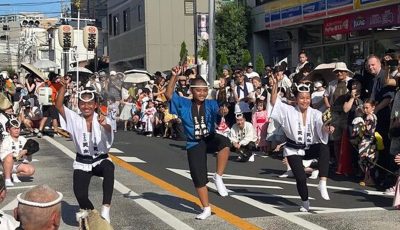Citizenship Day CNMI
Off-year election today for a few gubernatorial and state positions, but there are no earth-shaking ones save possibly liberals’ nostalgia for Boehner with the advent of a Paul Ryan speakership in Congress. Even Congressman Kilili’s independent but usually Democrat leanings in Congress notwithstanding, the predominance and subservience of one party over another hardly affects the CNMI. The elections today do not carry much of a consequence, and I suspect Ryan is not going to come as a surprise.
How Kentucky, Louisiana, and Mississippi vote for its governor have nothing compared to what the awakened CNMI citizen does to balance its membership in the union as well as maintain its democratic integrity of mapping out its own destiny.
We are guilty, though with reason, of repeatedly focusing on the machinations of the Pentagon in the affairs of the Marianas, in the rest of the western Pacific, north and south, where the 7th Fleet of the U.S. Navy once moved up and down at will. In fact, it was the embargo on the fossil fuel supply of Japan that precipitated the surprise and devastating attack of Nippon’s navy on the U.S. flotilla in Pearl Harbor that triggered the United States’ entry into WWII.
But we can leave the Pentagon to its own devices. What does the CNMI citizen say about its being a part of the union? How does it relate to the constitutional triune powers of the District of Columbia, to the Pentagon and the military command in western Pacific? What role, if any, do we see ourselves playing eastward toward Pohnpei, Kosrae, the Marshalls, Hawaii, and South Polynesia; southwest to Melanesia, westward to the Philippines, Palau, Taiwan, China, and north to Japan, Korea and Russia?
We are beyond worrying about preserving the cultural remains there are of the Chamorro-Carolinian indigene that is currently said to be a reduced navel-watching ethnocentricity. We are dealing with citizenship, and in this case, it is the bluebook-carrying resident of the CNMI, whichever ethnic origins one came from.
I will speak for myself and hope that others will speak likewise. My bluebook is circa ‘84, my green card circa ‘72, though I resided in the U.S. since ‘65 when the floodgates of Asian immigration was opened by JFK’s policy of stemming the African-American oppression in the south, the predominance of Europeans in the north, and the Asian blood unstoppable after almost a century of racial prejudice against the “slant eyes.”
My hosts were delighted by my coming over as a young man barely 20 to the country that saw the “trail of tears” when Native Americans were forced to migrate to Oklahoma. I was after all beautifully brown, a color that seemed to dominate the happy middle of the racial spectrum.
As a guest, hosting WWII vets were delighted to show off the fancy wares they brought back from the Orient after the cessation of hostilities when the two bombs on Hiroshima and Nagasaki bent the knees of the god-emperor Hirohito. I learned to use chopsticks from those who proudly put a pair on my plate, assuming that I knew how to use them. Of course I didn’t, but if I did not wish to go hungry I had to learn how to use them.
What has this got to do with citizenship in the CNMI today? Well, mine got blown wide open with the Earthrise consciousness of Apollo 8’s famed photo of the planet Earth from the moon’s horizon. Christmas of ‘69 took more photos of men stepping on the surface of the moon. A consciousness of global citizenship ripped open my national identity. Technically born an American national, I grew up with the U.S. English as my primary language, then forcibly transformed into a “foreigner” a year later with the granting of Philippine independence, and the immediate passage of the Rescission Act that negated Roosevelt’s induction of Philippine fighters vs. Japan as full-blooded vets.
My struggle with the civil rights movement and the protest against the war in Vietnam, a defensive posture of perpetual contrariness, found expression in Earthrise consciousness (fragility of the land mass, coastal, and marine life, in no small measure a product of human indifference) that birthed Earthbound commitment (promoting eco-friendly practices).
Today folks sign up to be global citizens, not as bystanders but as active participants in a global ethos that is the tenor of our time. Global citizenship is the new practical form of our allegiance and fealty, a very American sentiment in spite of the kneejerk conceit of Caucasian supremacy lingering in our archaic military agenda.
My earthrise consciousness and earthbound commitment derives from my American citizenship, faithful to its promise and forgiving of its limitations. Citizenship in the CNMI is not about percentage of Carolinian and Chamorro blood; it is about being a responsible global citizen in 2015, the form of which remains in individual hands, at least until it locates corporate dynamic in disciplined sense, heart, mind, and will.
Be a citizen. Of the world.



























